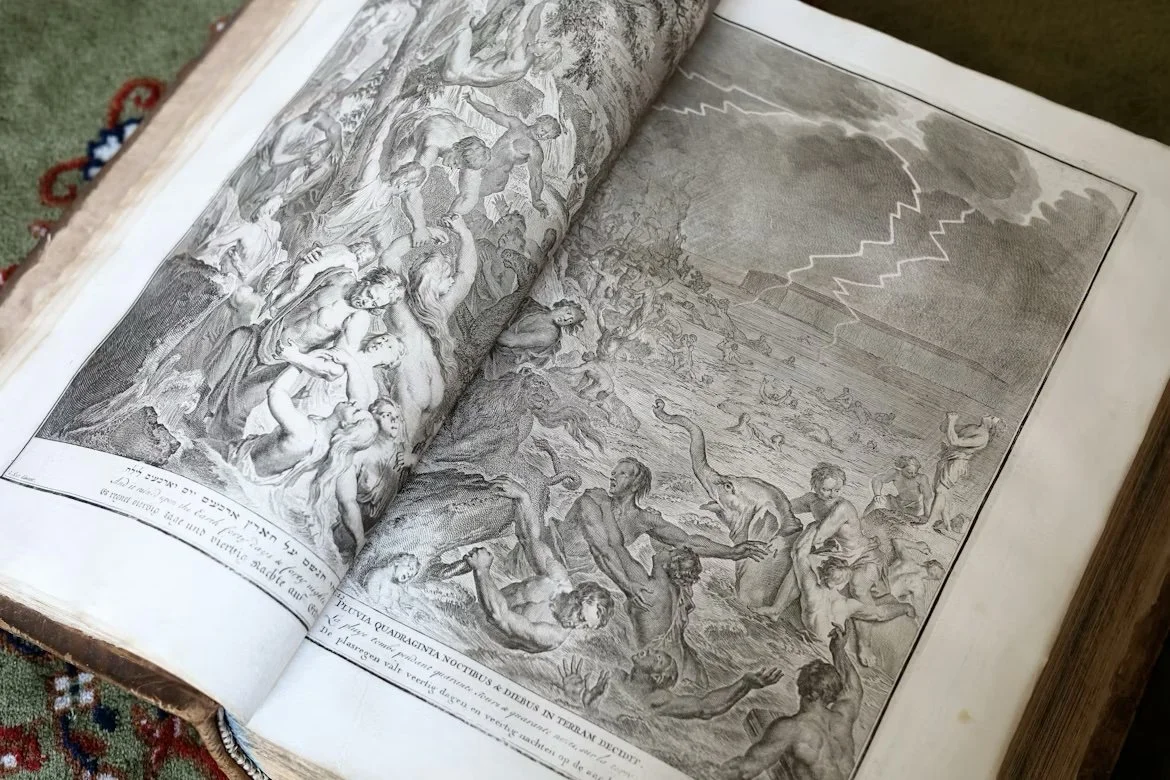Readings for today: Genesis 1-2
The doctrine of accommodation is the theological principle that God “condescends” to us and speaks to us in a way human beings can understand and to which they can respond. This is a critically important principle to apply to the first few chapters of Genesis. We have to remember God is speaking to a group of people living in the Ancient Near East who perceive their world in a particular way based upon the particular science of the time and their particular cultural beliefs. Genesis is not written to a people starting with a blank slate. They already have fully formed beliefs about the world around them and how it all came into being. God speaks into their world to reshape their understanding of things. He reshapes their understanding of creation and humanity and reveals His divine purposes to them. He tells them their origin story with Adam and Eve. He reminds them of their high calling to be faithful stewards over all He has made. He helps them understand the “why” behind the “what” of creation.
A close reading of Genesis one and two is confusing for many in the modern world. We know far more about the world and all that is in it than our Ancient Near East ancestors. We have telescopes probing the vast reaches of outer space. We have microscopes unlocking creation on a sub-atomic level. We’ve “thought God’s thoughts after Him” (Kepler) and discovered all kinds of immutable laws, strong and weak forces, dark and light matter, and energy that makes up our universe and we still have so much to learn. The launch of the James Webb telescope has allowed us to “travel” back in time over 13 billion years and see some the earliest moments of creation when galaxies were still in their infancy and stars and plants were beginning to form. It’s truly incredible and yet it can pose all kinds of problems when we come to the Biblical text. Some attempt to resolve this problem by trying to square modern science with the circle of Genesis 1. Some attempt to resolve this problem by rejecting science and/or the Biblical text altogether. A far more fruitful approach - to my mind at least - is to apply the doctrine of accommodation and seek to discern what exactly God is trying to reveal in the opening pages of Scripture.
Here I owe a great debt to Dr. John Walton who teaches Old Testament at Wheaton College. Dr. Walton argues we should take a “functional” approach to understanding Genesis 1. The people living in the Ancient Near East were less concerned with how things came into being and more concerned with the purpose behind them. So God creates light and darkness on the first day, the sky or “atmosphere” on the second day, and the land, oceans, and all plant life on the third day. For a person living in the Ancient Near East, the “functions” of each day were clear. Light and dark represent the creation of time. The sky or atmosphere represents the creation of weather. The land, oceans, and all plant life represent the foundation for a sustainable food source. Then God creates “functionaries.” He creates the sun and moon and stars to govern time and seasons. He fills the land, oceans, and skies with all kinds of different animals to build an ecological system that can sustain life. Finally, He creates humankind in His image to care for and cultivate and exercise dominion over all He has made and He charges them to “prosper, reproduce, and fill the earth.” Again, the point is less about how everything got here - on this point, Genesis 1:1 is clear, “First this: God created the Heavens and Earth—all you see, all you don’t see.” (MSG) - and more on the order and purpose behind God’s creative acts.
When we view Genesis 1 and 2 through Ancient Near East eyes, we can focus less on the unnecessary and completely contrived “conflict” between faith and science and instead focus on why human beings were created and the mandate God has given us to care for His creation.
Readings for tomorrow: John 1:1-3, Psalm 8, 104




